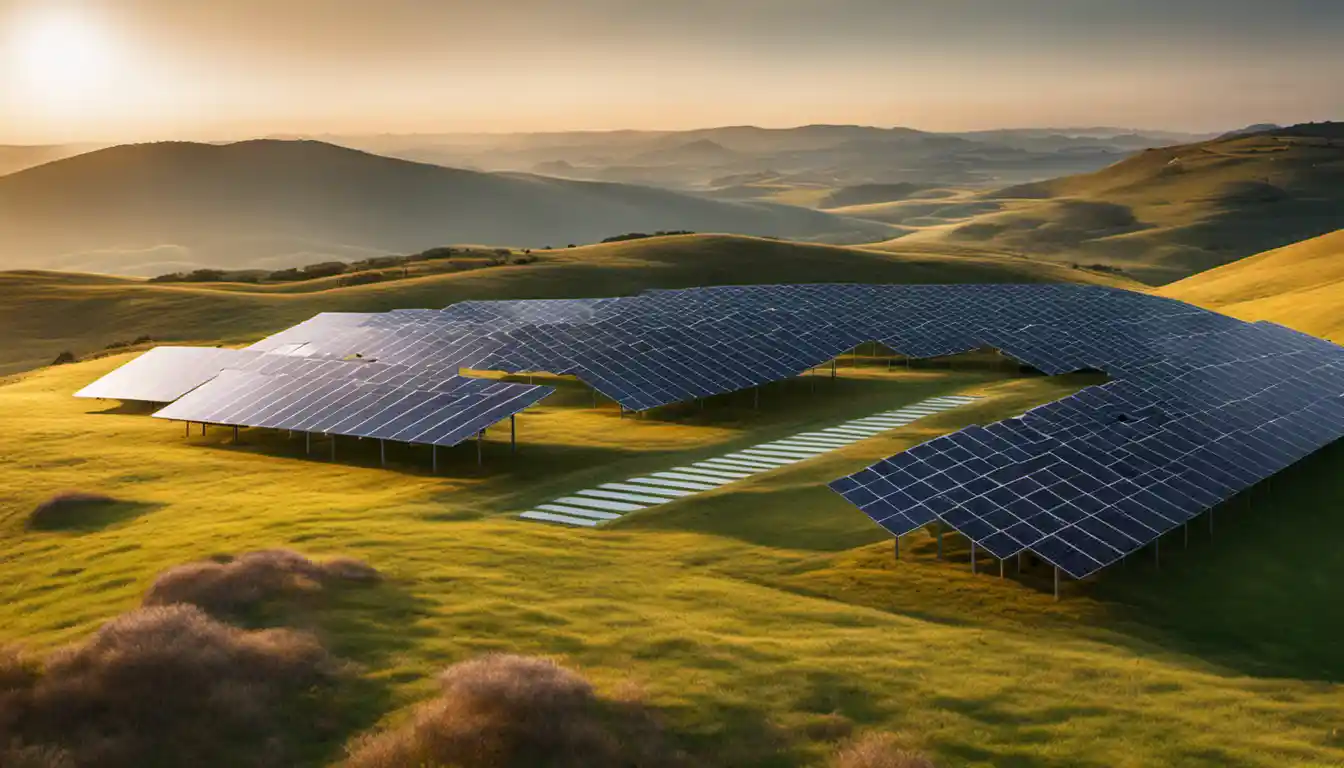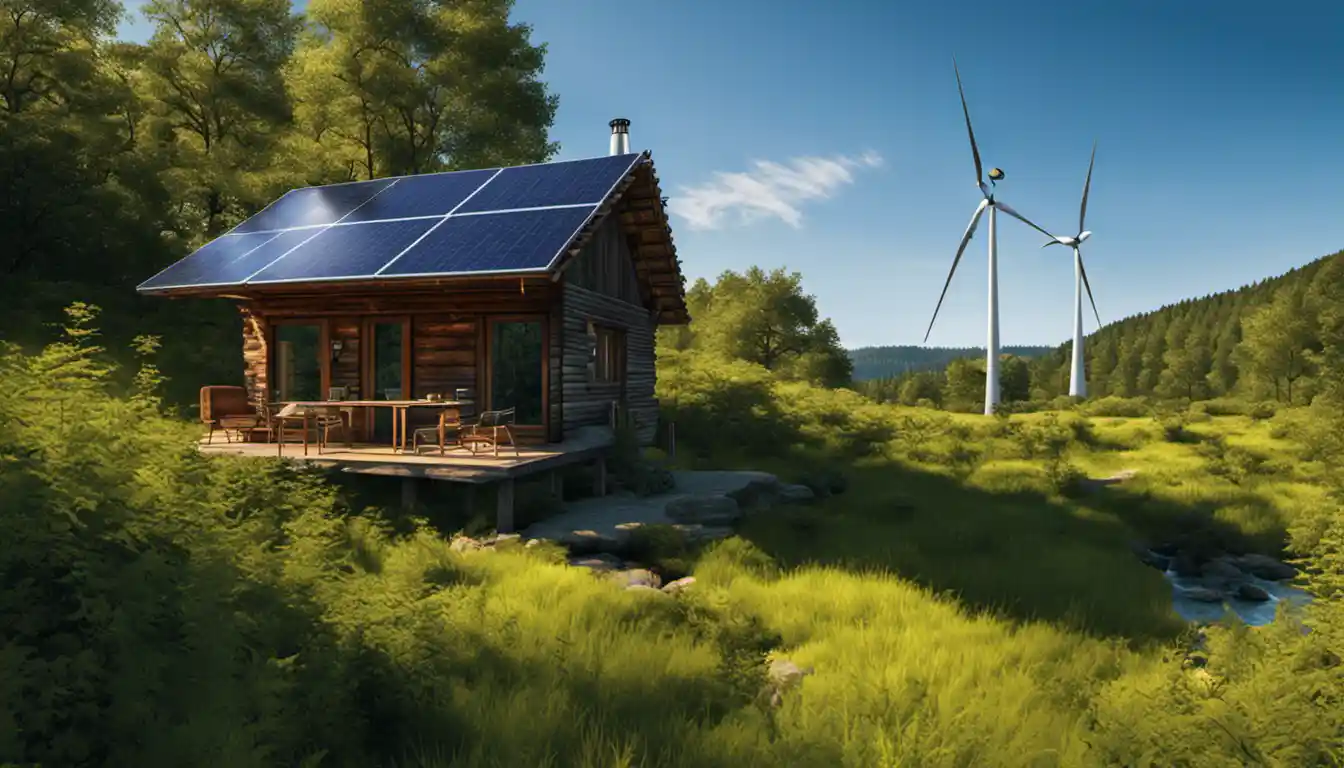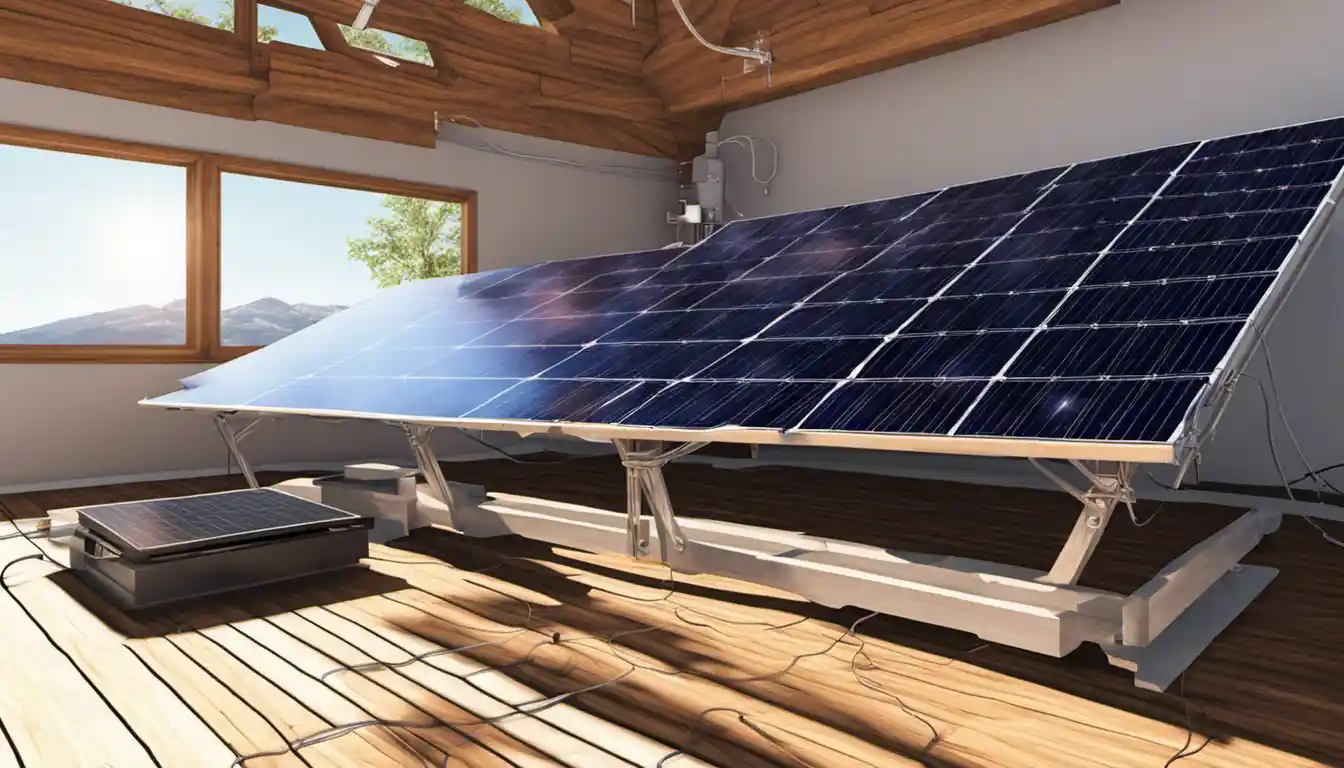Off-Grid Solar Explained
An off-grid solar system, also known as a standalone photovoltaic system, is a solar power generating system that functions independently from the local utility grid. This system is often paired with a battery storage system to store power for use during the night or overcast conditions. These types of systems are typically used in remote areas where there is no access to the traditional electricity grid.
Understanding the Difference
See also: How Many Solar Panels to Run a House Off Grid: The Ultimate Guide
Off-grid vs. grid-tied solar system
While both utilize solar power as the primary source of energy, they operate on fundamentally different principles. A grid-tied system is connected to the local utility grid, and hence shares power production. It can take power from the grid when required (at night, for example) or feed excess power back to the grid. An off-grid solar system, however, has no such link. It generates and consumes its own energy, independent from any external source. Rather like a self-contained island of power.
See also: What Happens to Excess Electricity from Solar Panels Off Grid? A Comprehensive Guide
Advantages and disadvantages of off-grid solar
As with anything, there are pros and cons to each side.
See also: Off Grid Solar System Installation: Your Comprehensive Guide to Going Solar
Advantages of an off-grid solar system
Among the significant benefits, the most prominent is energy sovereignty. Having a system that allows for autonomous control over your energy supply is both empowering and liberating. Plus, in areas where grid connectivity is questionable or non-existent, it’s an absolute game-changer. Moreover, as battery technology improves, it changes the game of electricity storage and accessibility, making off-grid systems even more attractive.
Disadvantages of an off-grid solar system

The main drawback is the upfront cost of setting up the system. The implementation of solar panels, combined with battery storage, can make for an expensive project. Also, managing your energy usage more carefully is a must-do. But considering the long-term benefits, most homeowners view this as a worthy investment.
Functional Aspects of Off-Grid Solar Systems
How you store electricity
Energy storage is a critical component of any off-grid solar system. During the daytime, your solar panels generate electricity — quite a bit more than you’d typically use. This extra energy doesn’t go to waste, though, it’s harvested and stored in batteries for use when the sun isn’t shining.
How you access electricity
Just like in a regular household, you can plug your devices into wall outlets to access the power stored in your system. The stored solar energy in the batteries is converted into usable AC power through an inverter.
How you pay for power
An off-grid solar system is an investment that, once set up, can lead to significant savings over time. Unlike being hooked up to the grid where you pay a monthly bill for energy, an off-grid system eliminates this cost. However, you might have some maintenance costs and possibly a “reserve” utility bill if you opt to stay grid-connected for emergency backup.
How power outages affect you

One of the most significant benefits of an off-grid system is the immunity to power outages. Since you’re not connected to the grid, grid failures do not affect you. You’re producing and storing your own power, so as long as the sun shines, you’re in business.
Various Types of Off-Grid Solar Systems
There are a few different types of off-grid solar systems, each designed to suit varying user needs and conditions.
Solar-only systems
These are the most straightforward kind of off-grid system, consisting solely of solar panels and storage batteries. They work best in areas with reliable sunlight, and where the electricity demand is compatible with the solar output.
Solar system with generator backup
These systems pair the solar setup with a traditional generator. The generator kicks in during prolonged periods of insufficient sun or if your energy storage hits the critical level.
Hybrid solar systems
These are pretty much the king of off-grid systems. They harness multiple sources of renewable energy — like wind or hydro, in addition to solar. These systems offer more reliable power across different seasons and weather conditions.
How Does Off-Grid Solar System Work?

Now, let’s dive a little deeper into the mechanics. Solar energy is captivated by the solar panels. This energy, in the form of direct current (DC), is conveyed to the charge controller, which regulates the energy’s pace, and further directs it to the battery bank.
Once in the battery bank, the energy is stored for future use. Whenever power is needed, the inverter pulls this stored energy, converts it from DC to alternating current (AC) — the type of electricity standard appliances use. This conversion is pertinent to the question: how does off grid solar power work?
How to Use Off-Grid Solar Power
Using an off-grid solar system isn’t much different from how you’d use a grid-tied system. The main difference comes down to energy management. Being off-grid requires an active role in managing and conscientiously using power. However, advancements in system monitoring equipment have streamlined this process considerably.
To read more about setting and operating an off-grid solar system, you can also check out this guide on how to get a permit for off-grid solar.
Difference Between On and Off-Grid Systems
On a high level, on-grid systems draw power when needed, and feed back excess power. On the other hand, off-grid solar systems require strategic power generation, storage, and usage to maintain constant, uninterrupted power.
For more insights and feedback on managing an off-grid solar system, specifically handling system storage, check our post on off-grid solar without batteries
Financial Aspects of Off-Grid Solar Systems
Off-grid solar systems can be a significant investment. However, the savings over time are considerable. Not having a monthly power bill and being insulated from rate hikes by power companies makes compelling economic sense. For a more in-depth look at the costs, head over to ‘how much does off-grid solar system cost’.
Embracing Energy Independence with Off-Grid Solar Systems
The concept of living off-the-grid has gained popularity over the past years, especially with the growing emphasis on environmental sustainability and energy independence. Harnessing solar power for your energy needs puts you in control of your destiny. This shift towards self-sustainability may not only save your wallet, but it could also save our planet. And to me, after 20 years working in solar energy, that’s a ‘win-win’ situation. Are you ready to embrace the future of independent living?



